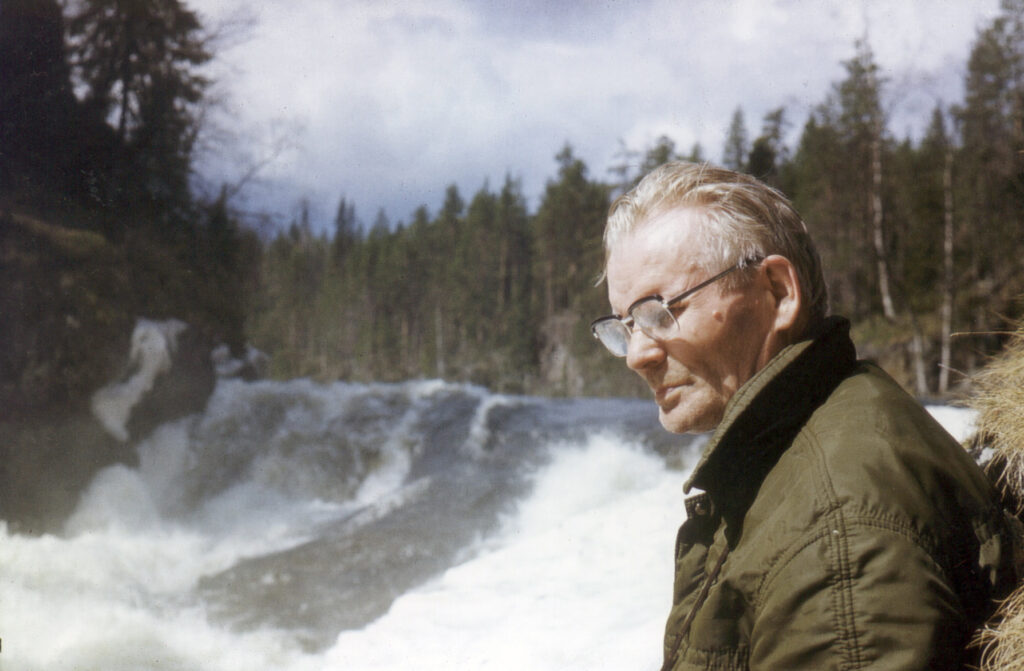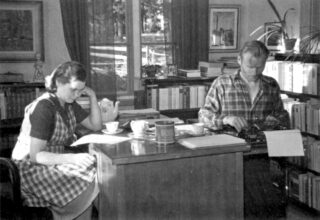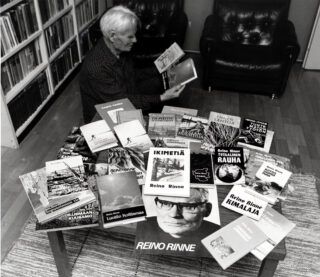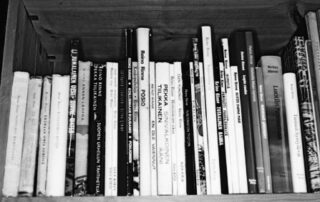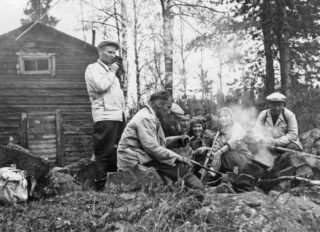Reino Rinne was a journalist, author, thinker, and conservationist. In his writings, he defended the nature of his home district Koillismaa and its free-flowing rapids. Born in the Suonnansaari island of Lake Kitkajärvi in 1913, Reino Rinne realized very early on that the constant increase in living standards and the reckless use of natural resources would not result in anything good in regard of nature or life. He wrote about the threats of climate change as early as in the 1950s.
In 1950, the experienced journalist and wordsmith founded the newspaper Koillissanomat in Kuusamo. Rinne introduced the concept of Koillismaa (the Northeastern Land), formulated with the author Kalle Päätalo, to describe the distinctive provincial character of Kuusamo, Taivalkoski, Posio and Pudasjärvi, the four rural communities within the newspaper’s circulation area.
Editor-in-Chief Rinne achieved national fame in the 1950s as a defender of the Kuusamo rapids. He opposed the effort of power companies to acquire rights to the natural rivers Oulanka, Kitka and Kuusinki. Koillissanomat reported on the plans of power companies to turn the flow direction of the rivers flowing into the White Sea so that they would empty into the Gulf of Bothnia via River Iijoki. The reporting turned the public opinion for the preservation of the rivers in their natural state.
Reino Rinne’s sincere will to defend the nature and tourism industry of the region, and the living conditions of the people of Koillismaa, ultimately resulted in the victory of natural values in Kuusamo. His dedication earned him the nickname “Kuusamo Rapids Warrior”.
The conservation of the rapids led to many good things: Reino Rinne is undoubtedly a forerunner on the journey that made nature tourism an important part of Kuusamo, and made Kuusamo a nature town characterized by natural waters and extensive national parks.
Reino Rinne became known as a versatile environmental philosopher. His observations of large-scale logging after the Great Partition and the use of heavy machinery in the Koillismaa forests were a major inspiration for the development of his independent environmental thinking. Reino Rinne looked at the north-eastern spruce and thought about the clear waters of Lake Kitkajärvi, but also drew inspiration from the international environmental debate that had gradually become known in Finland.
In the late 1960s, Reino Rinne became a freelance writer and resigned as editor-in-chief of Koillissanomat. During his career as a writer, he published more than 20 works: novels, essays, poems, aphorisms, pamphlets, and other texts, often with themes revolving on environmental philosophy and reflections on the possibilities of living in a world dominated by economics and technology. His most important work is the collection of poems Anna minulle atomipommi (Give Me an Atomic Bomb), published in 1970. Later in his career, Rinne was caught on the literary margin and self-published a large part of his late works.
Throughout his works, Reino Rinne retained a way of expression distinctive to himself, mixing playful humour with serious reflection. The message contained in the thinking and works of “Kuusamo Rapids Warrior” will continue to be relevant in the future.
”Listen to a woman from Koillismaa
I have washed my child with this water
And with fish this water has given
Fed my family every day of the week.
I have watched the sky in the mirror of water
And forgotten my troubles, with which I will not bother you.
I only say to you, only this I will say to you:
Do not sink your dirty hands
In this divine water.
Man needs it”
Reino Rinne
An excerpt from the poem ”A New Cry” (Give Me An Atomic Bomb, 1970)
